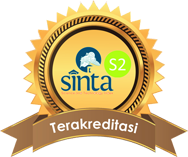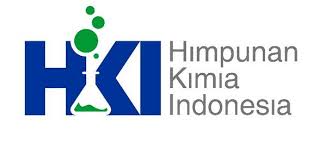IMPROVEMENT OF CRITICAL THINKING ABILITY IN BASE ACID MATERIAL THROUGH THE APPLICATION OF EDMODO-BASED DISCOVERY LEARNING MODEL
DOI:
https://doi.org/10.15575/jtk.v5i1.5406Keywords:
edmodo, critical thinking ability, discovery learning modelAbstract
This study aimed to determine the improvement of students' critical thinking abilities through the application of edmodo's assisted discovery learning model. The study was conducted on students of class XI MIPA 2 high school 2018/2019. This study used a true experimental design in the form of a pre-test and post-test control group design. Sampling was done by a cluster random sampling technique. Data collection used reasoned multiple choice test instruments and questionnaires. The result of test analysis of students' critical thinking skills showed that the average post-test value of the experimental class was lower than the control class. The N-gain test result showed that the magnitude of the increasing of the experimental class was 0.43 lower than the control class which is equal to 0.57. The application of edmodo assisted discovery learning model had a positive effect on students' critical thinking abilities with a low category as indicated by the correlation coefficient of 0.37 and the magnitude of the influence given is 14.08%. The conclusion of this study is the application of edmodo assisted discovery learning model can improve students' critical thinking skills. Furthermore, students agree to use edmodo's assisted discovery learning model for acid base learning.
References
Alghafri, A. S., & Ismail. (2014). The Effects of Integrating Creative and Critical Thinking on Schools Student’s Thinking. International Journal of Social Science and Humanity, 4(6), 523.
Basori. (2013). Pemanfaatan Social Learning Network Edmodo dalam Membantu Perkuliahan Teori Bodi Otomotif di Prodi Ptm Jptk FKIP UNS. Jurnal JIPTK, 6(2), 99-105.
Cherner, T., Lee, C.Y., Fegely, A., & Santaniello, L. (2016). A Detailed Rubric for Assessing the Quality of Teacher Resource Apps. Journal of Information Technology Education: Innovations in Practice, Vol 15.
Dharmawati. (2017). Penggunaan Media e-Learning Berbasis Edmodo dalam Pembelajaran English for Business. Query: Jurnal Sistem Informasi, 1 (1).
Durak, G. (2017). Using Social Learning Networks (SLNs) in Higher Education: Edmodo Through the Lenses of Academics. International Review of Research in Open and Distributed Learning. 18(1), 84-108.
Ennis, R. H. (2011). The Nature of Critical Thinking: SN outline of critical thinking disposition and abilities. Bioscience Education Journal, 11.
Heryani, Y. & D. Setialesmana. 2017. Kontribusi Penggunaan Model Discovery Learning Terhadap Peningkatan Kemampuan Koneksi dan Komunikasi Matematika pada Mahasiswa Program Studi Pendidikan Matematika Angkatan 2015-2016. Jurnal Siliwangi, 3(1): 190-196.
Kemendikbud. (2017). Silabus Revisi Tahun 2017. Jakarta: Kementerian Pendidikan dan Kebudayaan.
Kemendikbud. (2015). Materi Pelatihan Guru Implementasi Kurikulum 2013 SMA Mata Pelajaran Matematika. Jakarta: Kementerian Pendidikan dan Kebudayaan.
Khoirunnisa., Arwin A., & Berti Y. (2015). Pengaruh Model Discovery Learning Terhadap Kemampuan Berfikir Kritis dan Hasil Belajar Siswa. Jurnal Bioterdidik: Wahana Ekspresi Ilmiah, 3 (6).
Komara, E. (2018). Penguatan Pendidikan Karakter dan Pembelajaran Abad 21. SIPATAHOENAN: South-East Asian Journal for Youth, Sports & Health Education, 4(1), 17-26.
Noor. (2014). Peningkatan Kemampuan Berfikir Kritis Matematis Siswa Melalui Model Pembelajaran Discovery Learning. Tesis: Universitas Muhammadiyah Surakarta.
Nurrohmi, Y., Sugeng U., & Dwiyono, H.U. (2017). Pengaruh Model Pembelajaran Discovery Learning Terhadap Kemampuan Berfikir Kritis Mahasiswa. Jurnal Pendidikan: Teori, Penelitian, dan Pengembangan, 2(10), 1308-1314.
Priowijanto, G. (2013). Materi Simulasi Digital. Jakarta: Seamolec.
Rahmadani, Y., N. Fitakurahmah., N. Fungky., R. Prihatin., Q. Masjid, & B.A. Prayitno. (2018). Profil Keterampilan Literasi Sains Siswa Sekolah Menengah Atas (SMA) di Karanganyar. Jurnal Pendidikan Biologi, 7(3), 183-190.
Sabekti, A.P. & F. Khoirunnisa. (2018). Penggunaan Rasch Model Untuk Mengembangkan Instrumen Pengukuran Kemampuan Berfikir Kritis Siswa Pada Topik Ikatan Kimia. Jurnal Zarah, 6(2), 68-75.
Santoso, E. (2019). Kelas Virtual Menggunakan E-Learning Berbasis Edmodo (Virtual Classes Using E-Learning Based on Edmodo). Jurnal THEOREMS (The Original Research of Mathematics), 3(2), 160-177.
Serkan, C. & Eyup, Y. 2018. Learner Views About Cooperative Learning In Social Learning Networks. International Education Studies, 11 (1): 52-63.
Sulistiani, E., S. B. Waluya, & Masrukan. 2018. The Analysis of Student’s Critical Thinking Ability on Discovery Learning by Using Hand on Activity Based on the Curiosity. Journal of Physics: Conference Series 983, 1-7.
Yotiani, Y., Supardi, K. I., & Nuswowati, M. (2016). Pengembangan Bahan Ajar Hidrolisis Garam Bermuatan Karakter Berbasis Inkuiri Terbimbing untuk Meningkatkan Kemampuan Berpikir Kritis Siswa. Jurnal Inovasi Pendidikan Kimia, 10(2).
Downloads
Published
How to Cite
Issue
Section
Citation Check
License
Authors who publish with this journal agree to the following terms:
- Authors retain copyright and grant the journal right of first publication with the work simultaneously licensed under a Creative Commons Attribution-ShareAlike that allows others to share the work with an acknowledgement of the work's authorship and initial publication in this journal.
- Authors are able to enter into separate, additional contractual arrangements for the non-exclusive distribution of the journal's published version of the work (e.g., post it to an institutional repository or publish it in a book), with an acknowledgement of its initial publication in this journal.
- Authors are permitted and encouraged to post their work online (e.g., in institutional repositories or on their website) prior to and during the submission process, as it can lead to productive exchanges, as well as earlier and greater citation of published work (See The Effect of Open Access).









